DISCLAIMER: Always consult with a healthcare professional before starting any new routines, programs, or nutrition plans to ensure you receive the best medical advice and strategy for your specific individual needs.
For as long as our civilization has existed, herbs have had a special place in our medicine and spiritual rituals. And while the latter is not as widely popular today, the former continues to offer a popular alternative to traditional western medicine.
Herbs present a natural and holistic approach to treating illnesses, that aims to improve the overall condition of the ill, rather than heal local pains and discomforts. Not only that, but herbs go beyond treating physical indisposition and offer a boost to our mental health, as well.
In a modern world ravaged by mental health issues, let’s look at how herbal medicine can benefit our overall well-being, helping us bring health to both our physical and mental selves.
By the end of this post, you should have a better understanding of how natural herbal medicine and practices can improve your mental health and well-being.
Let’s begin.
What Is Natural Herbal Medicine? And How Is It Different from Traditional Medicine?

Natural herbal medicine is a form of alternative medicine that relies on natural substances from plants to promote health and wellness. Ubiquitous and practiced for centuries, herbal medicine has been the medicine of choice for many throughout time and has an important place in the world’s cultural heritage.
Perhaps one of the most distinguishable differences between herbal and traditional medicine is the approach to the treatment. While traditional medicine often focuses on symptoms and offers localized healing, natural herbal medicine takes a more holistic approach. Instead of just treating the symptoms of a particular illness, herbal medicine aims to address the root cause of the problem.
Another key difference is the form of medicine. Contrary to traditional medicine–primarily based on synthetic drugs and chemicals, herbal medicine uses natural remedies that have medicinal properties. Herbal remedies are made from different parts of plants, including leaves, roots, bark, flowers, and seeds.
The natural substances found in the different parts of a herb contain a wide range of active compounds, that help relieve pain and improve general health conditions. Among these compounds are alkaloids, flavonoids, and essential oils, and they’ve been found to positively influence a variety of health issues, even mental health conditions like anxiety and depression.
Another difference between herbal medicine and traditional medicine is the side effects. While traditional medications might have a more immediate effect in treating pain, they also come with more unwanted side effects. Not to mention you have to be careful not to mix certain types of medications. Herbal remedies, on the other hand, require a longer treatment but are gentler on the patient and when carefully dosed have fewer unwanted side effects.
Benefits of Natural Herbal Medicine

Clearly, to be used for thousands of years, herbal medicine has proven its benefits. But what are those benefits exactly?
Let’s take a look.
- Natural
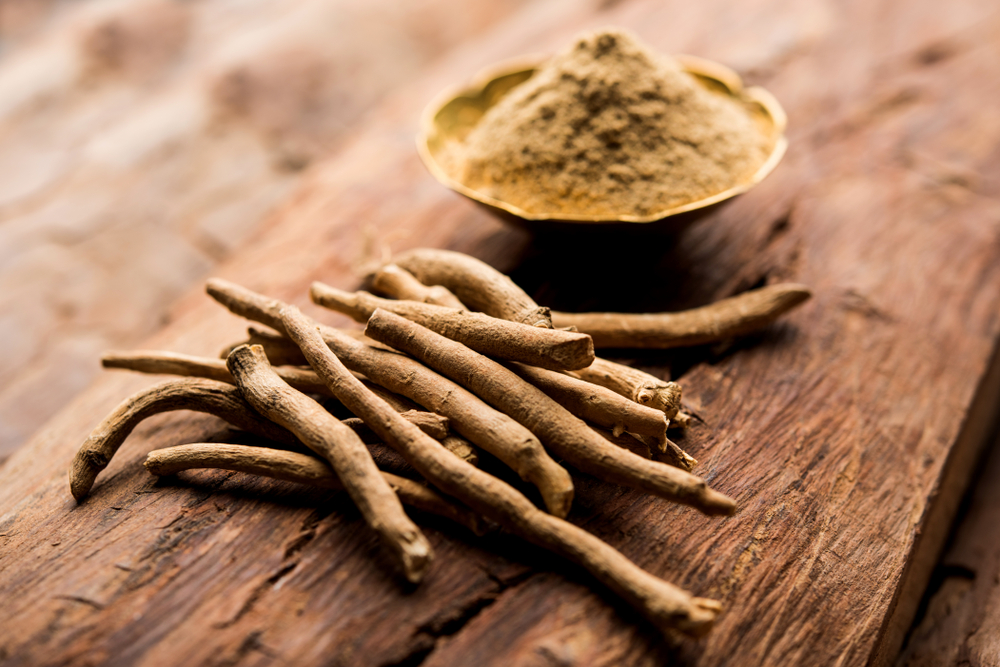 Traditional herbal remedies come from plants, and with little to no processing, keeping the most of their natural healing power.
Traditional herbal remedies come from plants, and with little to no processing, keeping the most of their natural healing power.
- Holistic
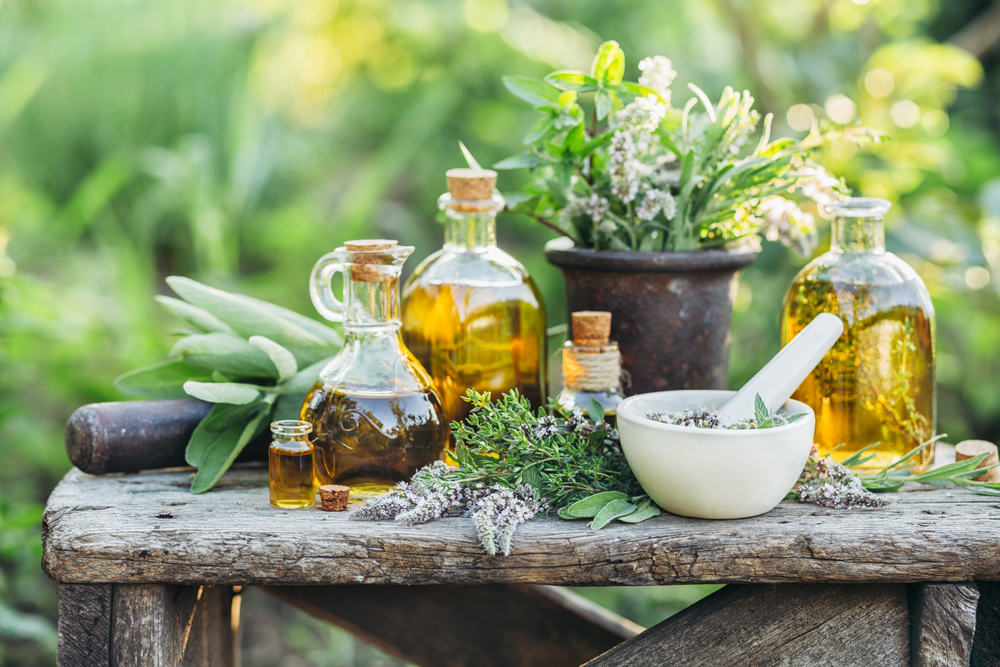 Herbal medicine is a comprehensive and integrated method of treatment. It’s based on treating the person, rather than the symptoms.
Herbal medicine is a comprehensive and integrated method of treatment. It’s based on treating the person, rather than the symptoms.
- Personalized
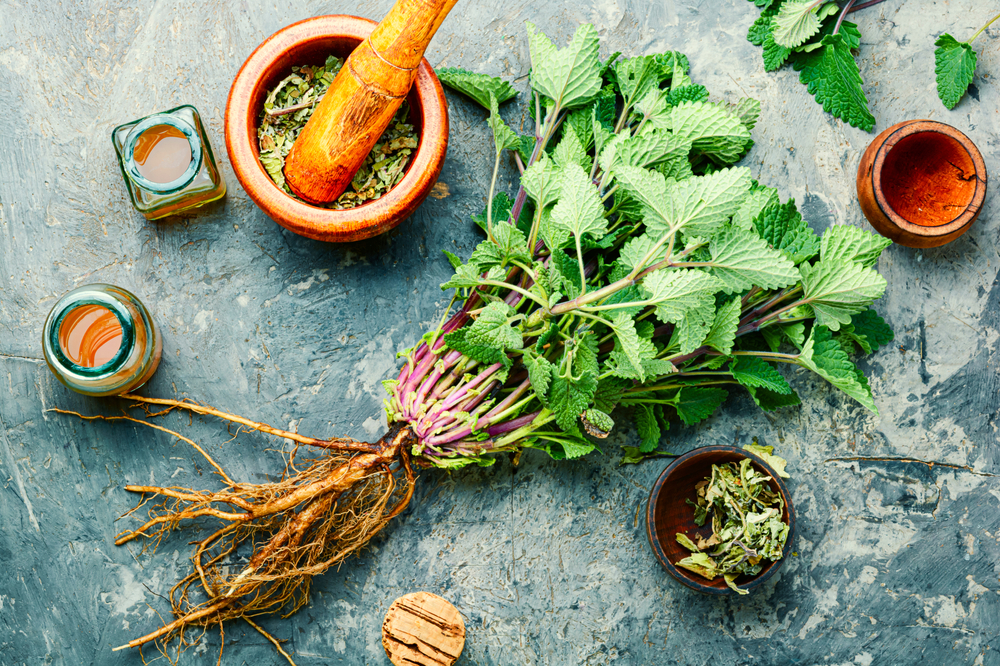 Traditional herbal medicine allows for individualized healing plans, that are tailored to your particular situation, making it the more personalized approach to health.
Traditional herbal medicine allows for individualized healing plans, that are tailored to your particular situation, making it the more personalized approach to health.
- Wide range of use
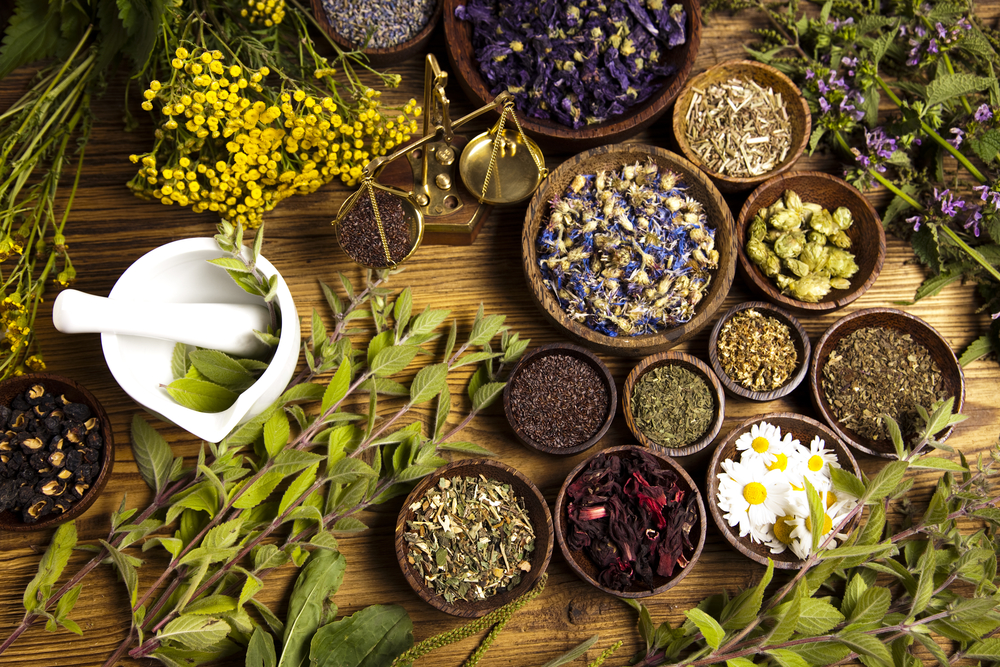
Herbal remedies have a broad range of applications They can be used to treat anything from digestive issues, and skin conditions, to mental health issues like anxiety and depression.
- Fewer side effects & interactions
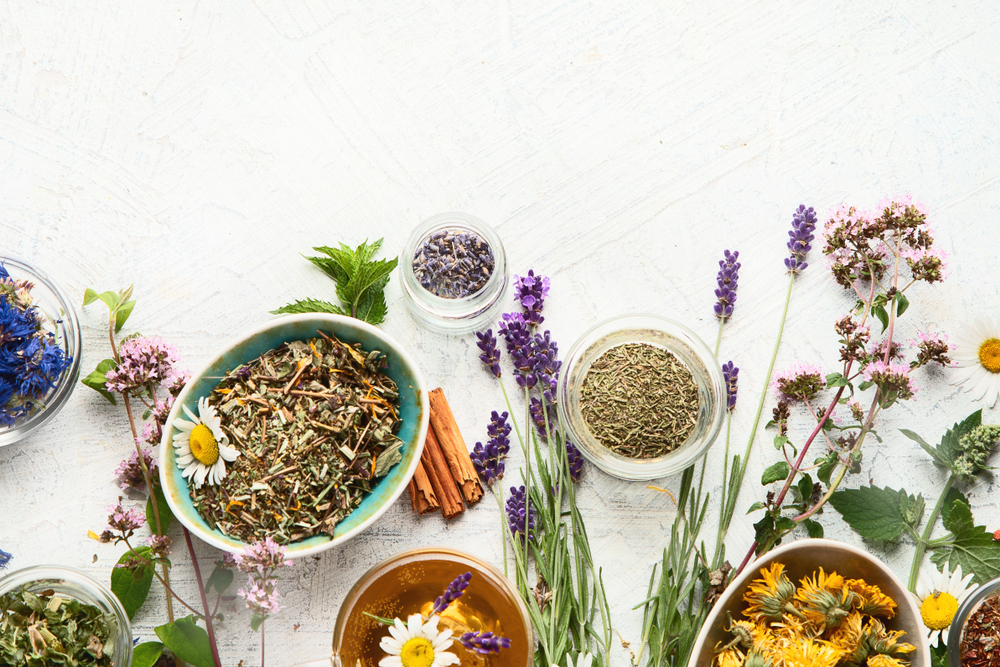 Unlike, traditional medications, herbal meds are not as chemically processed and better received by the body. They are also much less likely to negatively interact with other supplements or drugs than traditional medicinal drugs.
Unlike, traditional medications, herbal meds are not as chemically processed and better received by the body. They are also much less likely to negatively interact with other supplements or drugs than traditional medicinal drugs.
- Eco-friendly
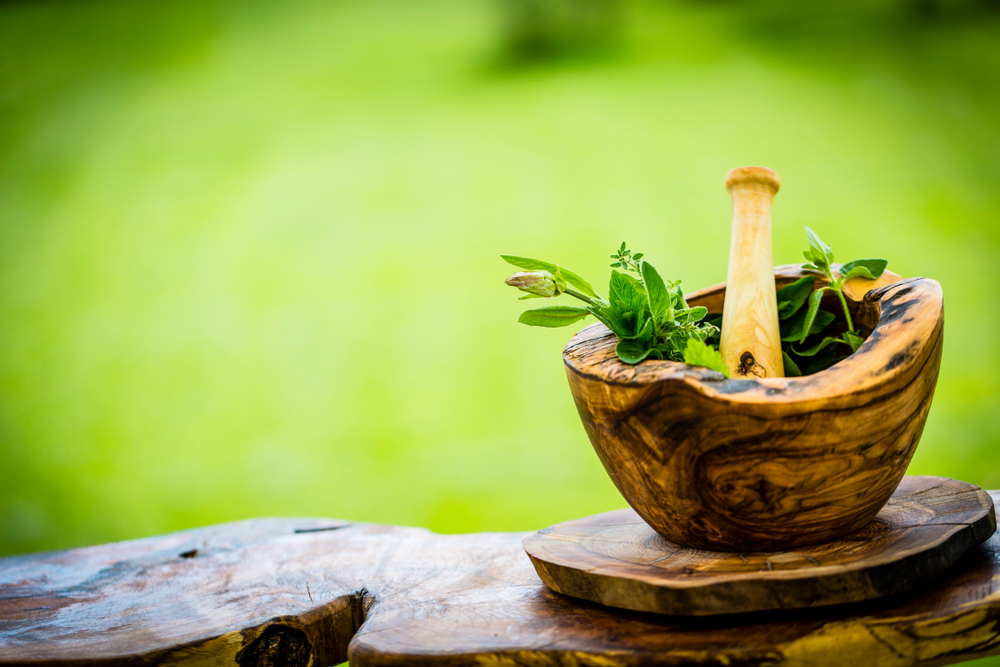 Since they are less processed, are usually locally grown, and sustainably resourced herbal medications are also the more environmentally-friendly option.
Since they are less processed, are usually locally grown, and sustainably resourced herbal medications are also the more environmentally-friendly option.
- Not so expensive
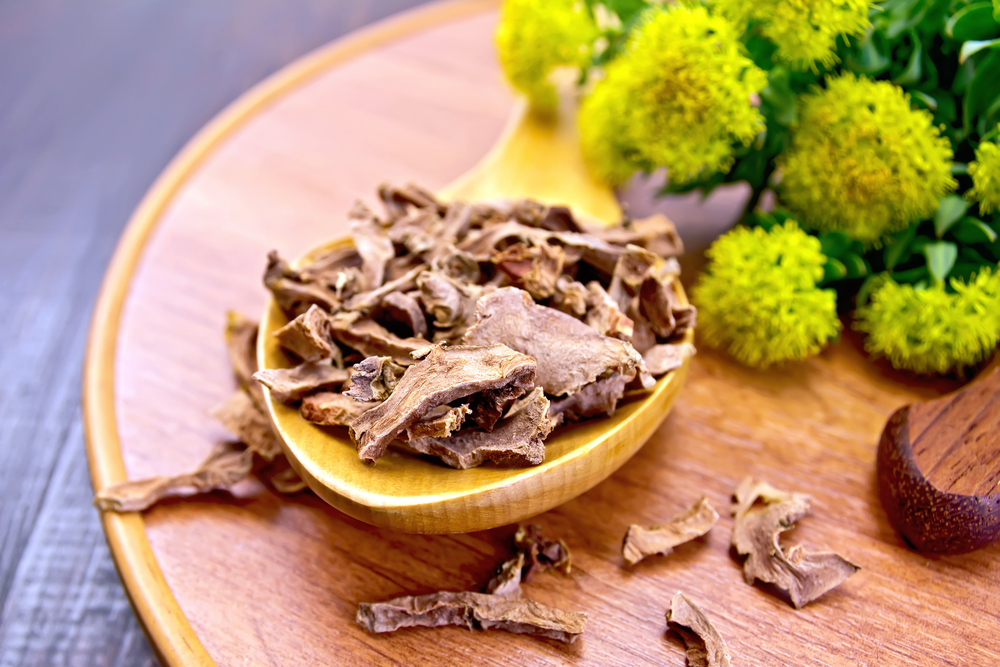
Traditional medication falls under the trademarks of big pharmaceutical companies, that hold the rights for production and distribution, which consequently make medication expensive. On the contrary, herbal medicine is public domain and accessible to people who may not have access to traditional medical care.
Herbal medicine clearly has many benefits and can help you improve your overall physical and mental health. There is one piece of advice, however, that we recommend you follow— seeking consultation with a specialist before beginning your treatment.
Much like traditional medicine, in herbal medicine, you need to be guided by a trained and experienced practitioner, to ensure you’re using herbs safely and most appropriately.
With that in mind let’s explore some of the conditions herbal remedies can help you treat.
What Are Some Health Conditions Herbal Medicine Helps with?
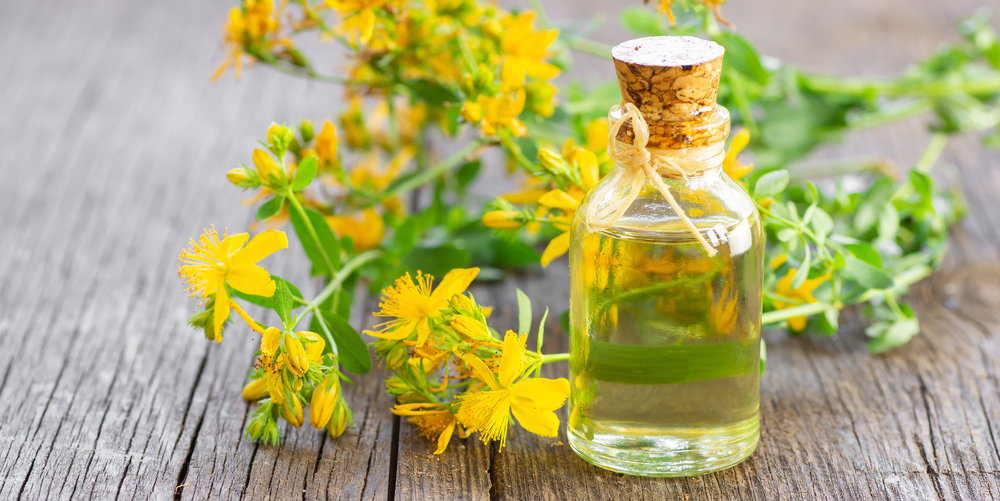 As we’ve already mentioned herbal medicine has a wide spectrum of applications. Herbs are even great as preventive care.
As we’ve already mentioned herbal medicine has a wide spectrum of applications. Herbs are even great as preventive care.
Let’s explore.
Herbs for Overall Well-Being
Herbs have the potential to improve your overall well-being by promoting relaxation, reducing stress, and improving sleep quality. There are a few herbs that help support the body’s natural defenses and improve overall vitality. Some popular plants for overall health include ashwagandha, ginseng, and holy basil.
Herbs for Preventive Care
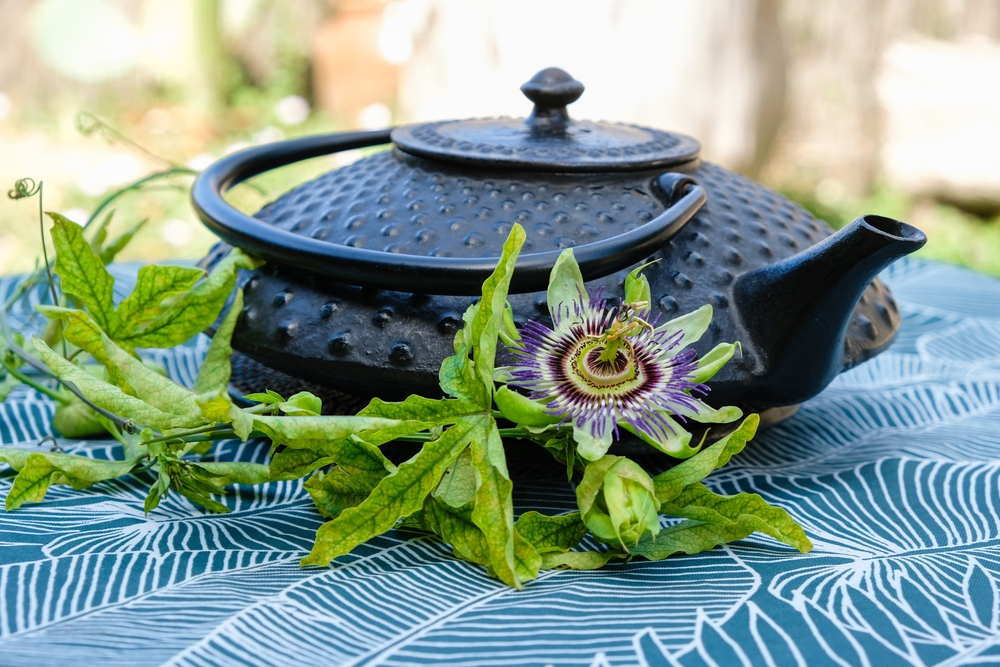 Many herbs have preventive properties, as well. This means they can help reduce the risk of developing certain diseases. Herbs that fall into that category are echinacea, elderberry, and curiously–garlic.
Many herbs have preventive properties, as well. This means they can help reduce the risk of developing certain diseases. Herbs that fall into that category are echinacea, elderberry, and curiously–garlic.
Herbs for Immunity
 As part of its preventive care, herbal medicine is excellent for supporting the immune system. Many herbs have natural immune-boosting properties and can be used to help prevent infections and illnesses. Popular herbs for immune support include echinacea, garlic, and elderberry.
As part of its preventive care, herbal medicine is excellent for supporting the immune system. Many herbs have natural immune-boosting properties and can be used to help prevent infections and illnesses. Popular herbs for immune support include echinacea, garlic, and elderberry.
Herbs for Pain Relief
 Herbs can also be used to relieve immediate pain and discomfort like headaches, menstrual cramps, and muscle pain. Herbs like ginger and turmeric, have anti-inflammatory properties that can help reduce pain and inflammation. Chamomile and valerian have calming and relaxing effects.
Herbs can also be used to relieve immediate pain and discomfort like headaches, menstrual cramps, and muscle pain. Herbs like ginger and turmeric, have anti-inflammatory properties that can help reduce pain and inflammation. Chamomile and valerian have calming and relaxing effects.
Herbs for Better Digestion
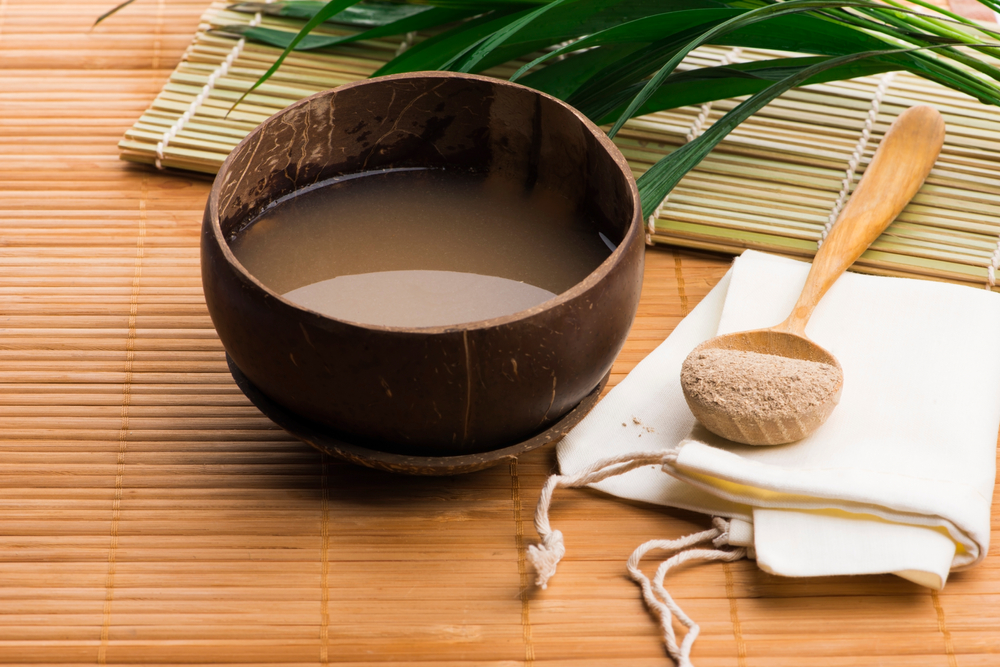 Herbal remedies can also help you improve digestion and alleviate digestive issues like indigestion, bloating, constipation, and diarrhea. Herbs used to relieve digestive health include ginger, peppermint, and fennel.
Herbal remedies can also help you improve digestion and alleviate digestive issues like indigestion, bloating, constipation, and diarrhea. Herbs used to relieve digestive health include ginger, peppermint, and fennel.
Herbs for Skin Health
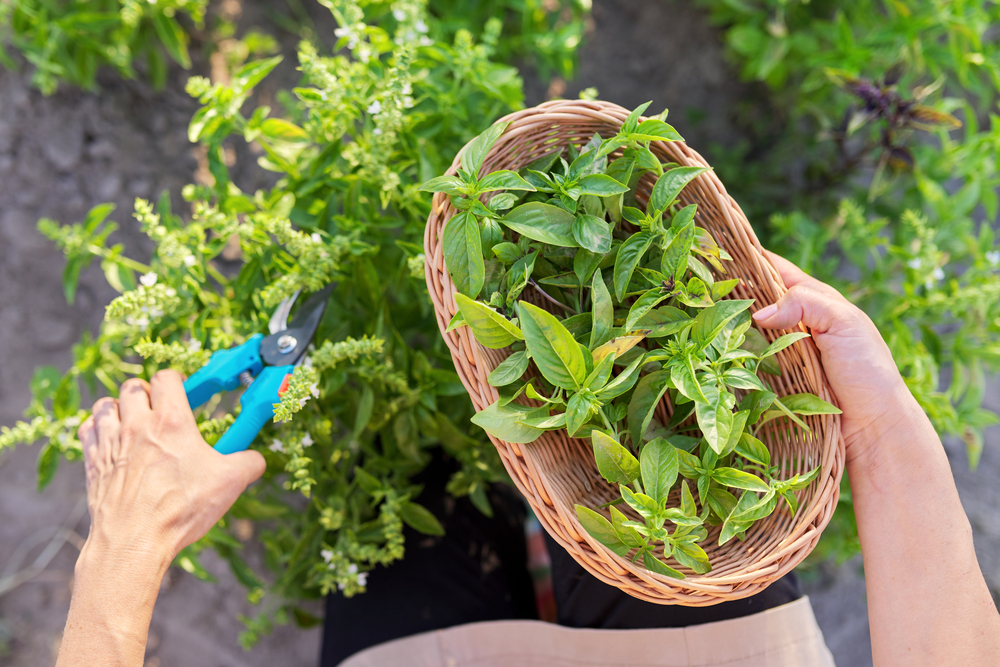 Herbs have anti-inflammatory and anti-bacterial properties, which can help improve skin health and treat skin conditions such as eczema, acne, and psoriasis. Popular herbs for skin health include aloe vera, calendula, and chamomile.
Herbs have anti-inflammatory and anti-bacterial properties, which can help improve skin health and treat skin conditions such as eczema, acne, and psoriasis. Popular herbs for skin health include aloe vera, calendula, and chamomile.
Herbs for Mental Health
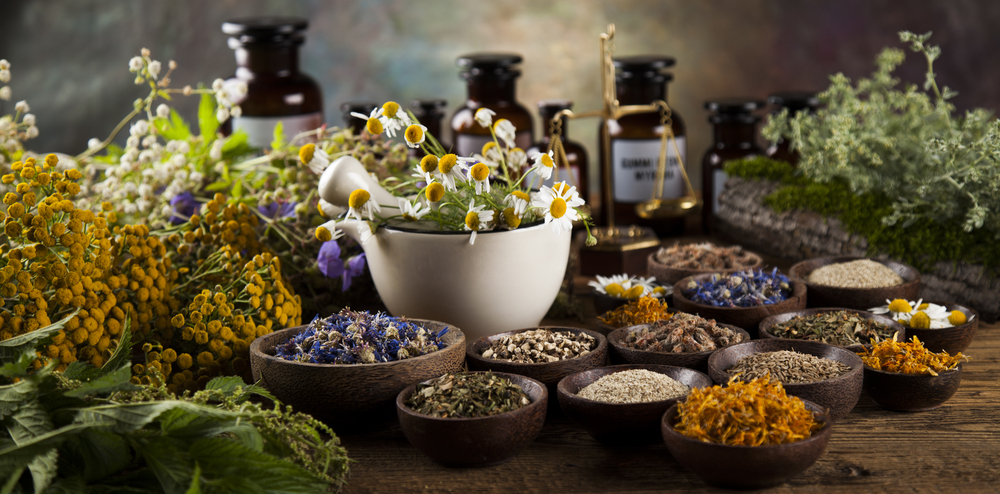 Herbal medicine is a great option for mental health issues. More than a few herbs have natural properties that can help to promote relaxation, reduce stress, and improve mood. Herbs can even alleviate serious conditions like anxiety and depression. Popular herbs for mental health include ashwagandha, chamomile, and valerian.
Herbal medicine is a great option for mental health issues. More than a few herbs have natural properties that can help to promote relaxation, reduce stress, and improve mood. Herbs can even alleviate serious conditions like anxiety and depression. Popular herbs for mental health include ashwagandha, chamomile, and valerian.
Herbal medicine offers a restorative alternative to traditional medicine and can have a particularly positive effect on mental health issues. So, let’s look at the benefits of herbal medicine for mental health in more detail.
Natural Herbal Remedies for Mental Health
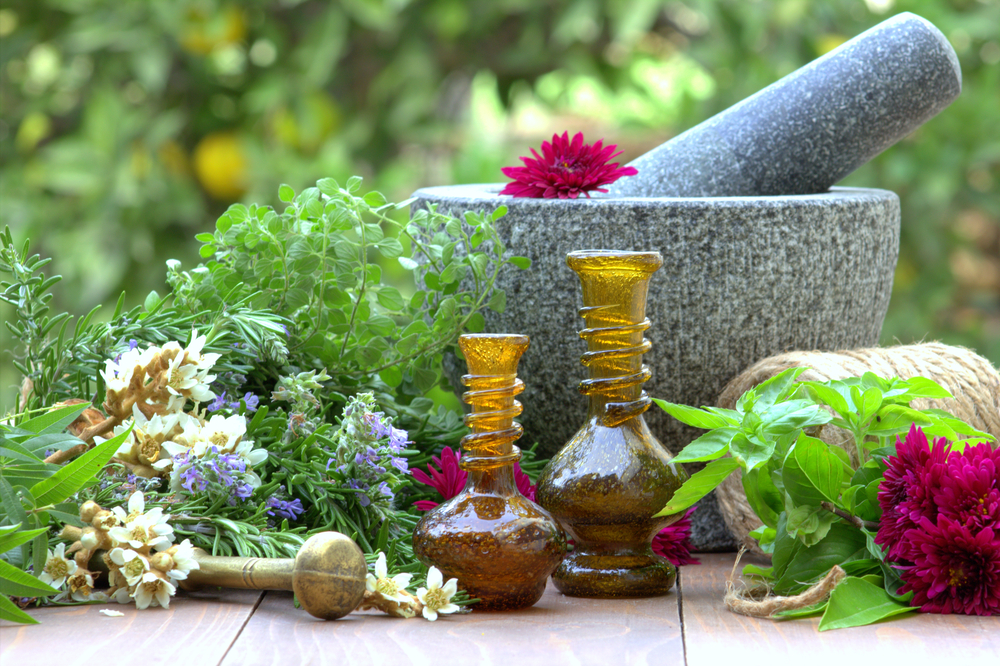
Taking care of your overall well-being means paying careful attention to your mental health, as well. And herbal remedies offer kinder treatment for some of the common mental health issues, plaguing us–modern humans.
Many different herbs are commonly used in natural herbal medicine to treat mental health conditions. Here are a few of them.
- St. John’s Wort
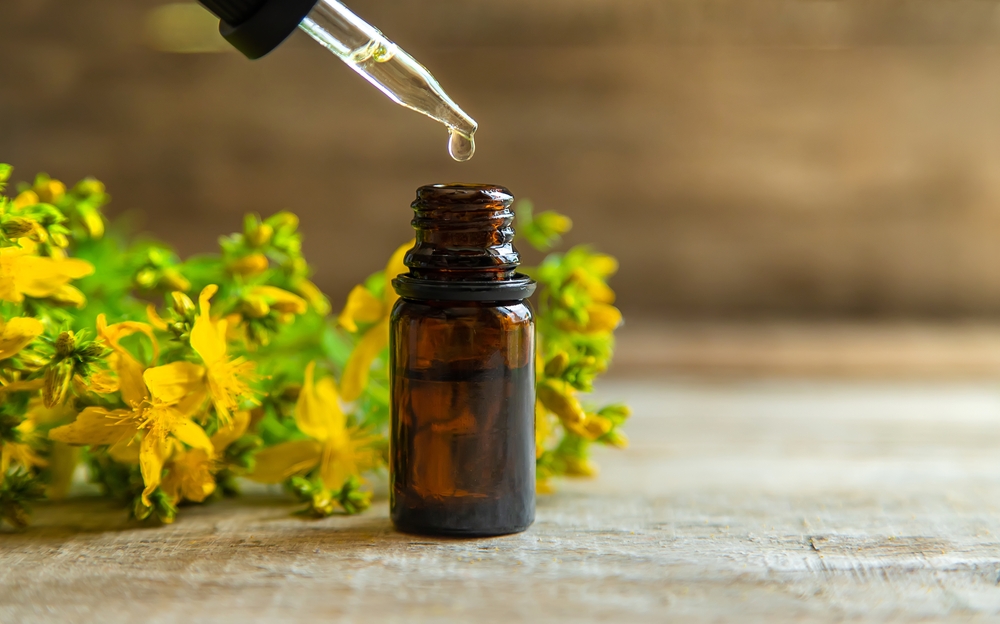 This herb has been used for centuries to treat depression and anxiety. It is believed to work by increasing the levels of serotonin, a neurotransmitter that helps regulate mood. There is even scientific evidence that supports the claim that St. John’s Wort has therapeutic benefits in treating mild depression.
This herb has been used for centuries to treat depression and anxiety. It is believed to work by increasing the levels of serotonin, a neurotransmitter that helps regulate mood. There is even scientific evidence that supports the claim that St. John’s Wort has therapeutic benefits in treating mild depression.
- Valerian root
 This herb is commonly used to promote relaxation and reduce anxiety. Studies have found that valerian root is also a reliable sleep aid, it can help improve sleep and sleep quality, and these are essential for your overall mental health.
This herb is commonly used to promote relaxation and reduce anxiety. Studies have found that valerian root is also a reliable sleep aid, it can help improve sleep and sleep quality, and these are essential for your overall mental health.
- Passionflower
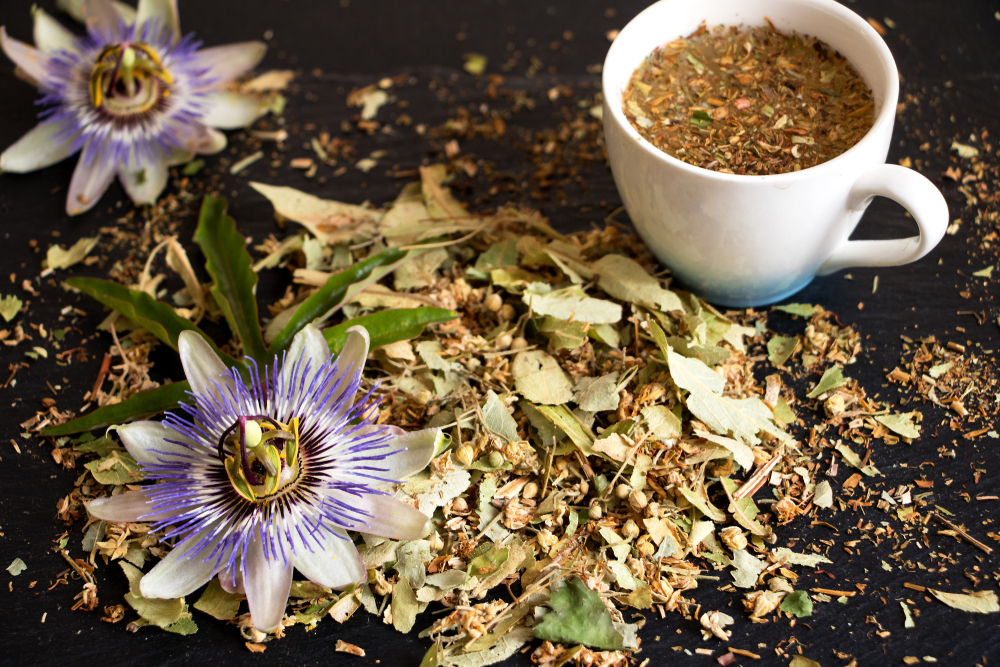
This herb has a calming effect on the body and can help reduce feelings of nervousness and stress. It is often used to promote relaxation and improve sleep quality. There is even considerable scientific evidence that supports the claim of the positive effects of the herb on people suffering from anxiety.
- Chamomile
 Chamomile is known for its soothing properties and can help promote relaxation and treat issues like insomnia. It is believed to work by increasing levels of GABA–a neurotransmitter that helps to calm the nervous system. Research into the herb’s sleep-inducing properties, also confirms its positive effects on sleep.
Chamomile is known for its soothing properties and can help promote relaxation and treat issues like insomnia. It is believed to work by increasing levels of GABA–a neurotransmitter that helps to calm the nervous system. Research into the herb’s sleep-inducing properties, also confirms its positive effects on sleep.
- Lavender
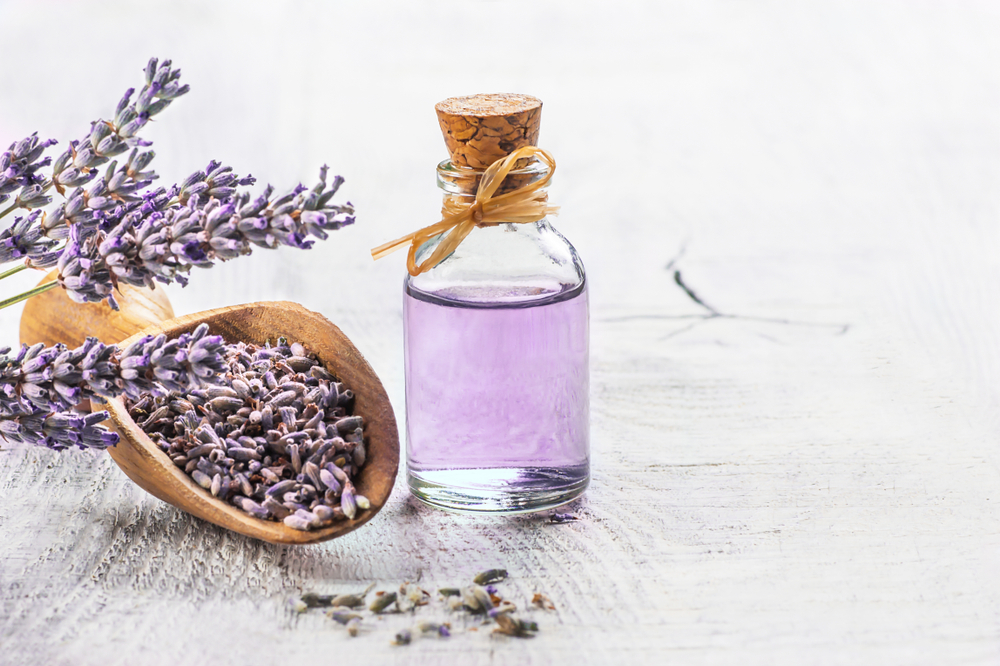 Lavender is known for its calming and relaxing properties. It has been used for centuries as a natural remedy for mental health conditions, such as anxiety and depression. Studies have found that inhaling lavender essential oil can reduce stress levels and improve mood in people with anxiety.
Lavender is known for its calming and relaxing properties. It has been used for centuries as a natural remedy for mental health conditions, such as anxiety and depression. Studies have found that inhaling lavender essential oil can reduce stress levels and improve mood in people with anxiety.
It’s important to note that while natural herbal remedies can be effective, they should be used under the guidance of a healthcare professional, especially if you have underlying health conditions.
The Advantages of Combining Herbal Medicine with a Wellness Retreat
 One way to increase the effectiveness of herbal medicine, even more, is to combine it with other mental health practices, like meditation, yoga, and wellness retreats. Wellness retreats are those jams in the mindfulness practice circles that offer the opportunity to disconnect from the stressors of daily life and focus on self-care.
One way to increase the effectiveness of herbal medicine, even more, is to combine it with other mental health practices, like meditation, yoga, and wellness retreats. Wellness retreats are those jams in the mindfulness practice circles that offer the opportunity to disconnect from the stressors of daily life and focus on self-care.
Many retreats are located in serene and peaceful settings, think mountains and beaches, that further promote relaxation and reduce feelings of anxiety and stress.
What’s more, wellness retreats often provide a variety of complementary practices such as guided yoga and meditation, massage, and acupuncture that can work together with herbal remedies to promote overall health and well-being.
Another benefit wellness retreats offer is the opportunity to connect with like-minded individuals and build a community. It opens the opportunity of creating a support group that will help you stay motivated and continue incorporating natural herbal remedies and other wellness practices into your daily routine even after the retreat is over.
On a Closing Note
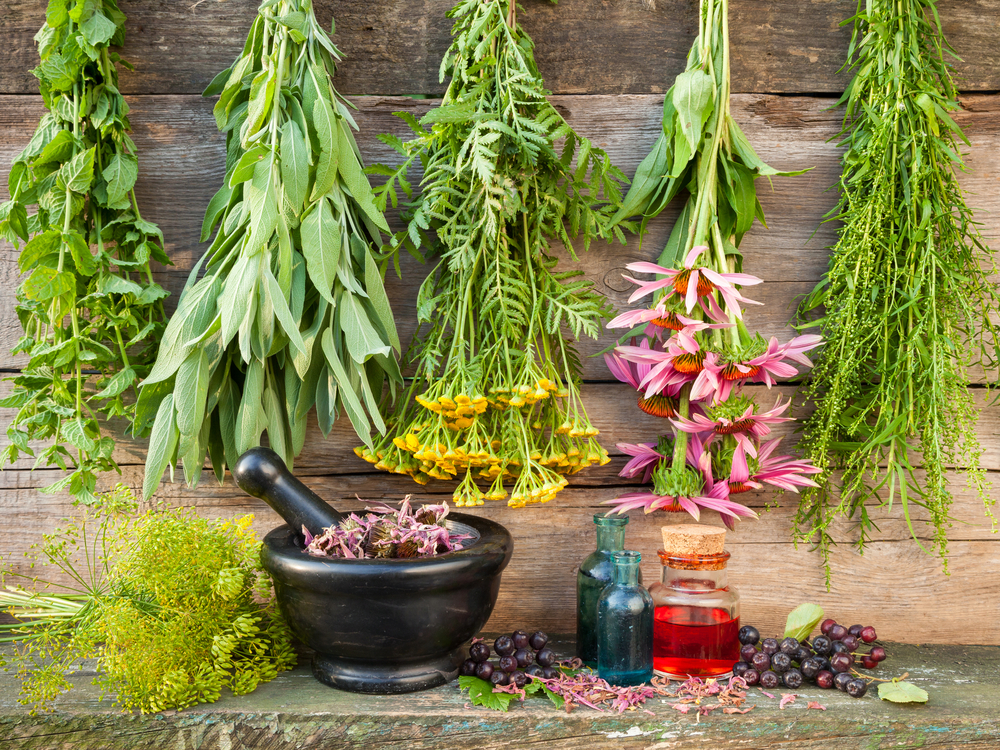 While many of us focus on the physical side of our well-being, we shouldn’t forget that there are two sides to our health– the physical and the mental. Natural herbal medicine is beneficial for both but especially helpful for our mental health. Herbs offer a gentle and holistic healing approach to easing emotional fluctuations and act as antidotes to depression, mood swings, and anxiety.
While many of us focus on the physical side of our well-being, we shouldn’t forget that there are two sides to our health– the physical and the mental. Natural herbal medicine is beneficial for both but especially helpful for our mental health. Herbs offer a gentle and holistic healing approach to easing emotional fluctuations and act as antidotes to depression, mood swings, and anxiety.
So, if you are looking for a holistic and eco-friendly approach to balancing your emotions and freeing up your mental energy reserves, give herbal medicine a try.
We could all use more mental harmony – so why not try a few alternatives, now? Take your time to research and consult with a health practitioner about the different types of herbs available to cater to your personal needs, look for like-minded peers that share your interest, and start your journey toward better mental health.
DISCLAIMER: Always consult with a healthcare professional before starting any new routines, programs, or nutrition plans to ensure you receive the best medical advice and strategy for your specific individual needs.


